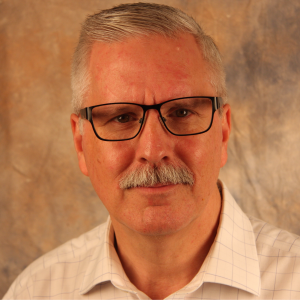The social and community issues that police leaders are challenged with today are broad and varied, from domestic violence to fentanyl overdoses to mental illness with a myriad of other issues in the news that require organizational response.
Each issue is critically important and many other issues have advocacy groups and political drive, along with clear organizations policies, funding and community support. They are issues that virtually every police leader has spoken to, that they have addressed for their organizations, that they have made an organizational focus.
Now, when you put human trafficking up against that list, for many organizations, it is not likely to make the “A” List of priorities. Not because it lacks importance, severity or impact, but rather that it lacks advocacy, political support and community action. The reason is that the crime is purposefully hidden, and as a result, many people don’t see it in their communities, and it therefore lacks the support of higher profile issues.
This is an issue that can get lost amongst other community or organizational concerns, hence police leaders much first be convinced that human trafficking is an issue that requires their organizational attention. They need to ask themselves the question: “Am I convinced?” Only when you, as the organizational leader are convinced of the veracity of the issue and its impact upon victims and the community, can you effectively lead your organizational to combat trafficking.
Leadership team commitment
You as the organizational leader have many issues on your plate, and can only be successful when those that support you share your vision and commitment. Therefore, you need to have the in-depth discussions with the other members of your leadership team about human trafficking; about its costs and its impact. The lack of understanding about the nature of human trafficking and the misconceptions surrounding the issue are all barriers to organizations committing resources to combat human trafficking. You need to ensure that your leadership team can say “Yes”, when asked the question” Are you convinced that human trafficking is an issue that we need to commit time and resources to fight?”
Political oversight or governing board
Beyond your leadership team, many agencies will need the support of their political oversight group or board in order to assign human and fiscal resources to an issue. As with your leadership team, it’s vitally important that your governing board support resource allocation, and that they acknowledge the impact of human trafficking on your community.
Selecting the organizational lead.
Police leaders have to be committed to the whole of the organization and are responsible for all issues. Therefore they frequently select internal resources to take the day-to-day lead on specific issues. As in all cases, there are numerous factors to consider when selecting your lead on counter-trafficking for your agency. Your delegate should have sufficient rank that it conveys the importance of the issue to the membership as well as having the capacity to secure resources and direct activities. However, mindful of the old adage “the willing horse carries the load”, you need to evaluate the other issues that are “on their plate”, since an organizational lead that is responsible for many things, can in reality, lead none. Finally, there is the issue about how your selected delegate is perceived across the organizational; are they respected by their peers and subordinates; trusted by their superiors; recognized for their commitment?
Developing your organizations response
Once you have selected your organizational lead to coordinate counter trafficking, they need to be engaged in the development of your agencies strategy, which needs to includes your goals; your actions; your policies; your measurements; your focus; the need for specialization and your anticipated outcomes of your agency’s efforts. This should be done in consultation with all levels of the organization, and allow those who are passionate about this issue to have a voice in the construction of their organizations response.
Getting everyone on-board
Now with a supportive leadership team and a committed core team and strong issue lead you can start engaging your managers and supervisors and inform them of the issue, seek their support and outline your strategy. Finally, it’s time to launch the initiative and put the resources of your agency into the fight against human trafficking, and help lead the positive change in your community.

JAMES BROWN
INSP. (RET'D) MSC, FRSA, CMM III (POLICE EXECUTIVE)
Jim retired with having served over 33 years with the Toronto Police, which included working internationally with the OSCE, ODIHR and DCAF in Europe, along with many agencies across the U.S. Jim is a doctoral candidate in Policing and Community Safety and is an Adjunct Professor of Criminology at the Ontario Tech University.

